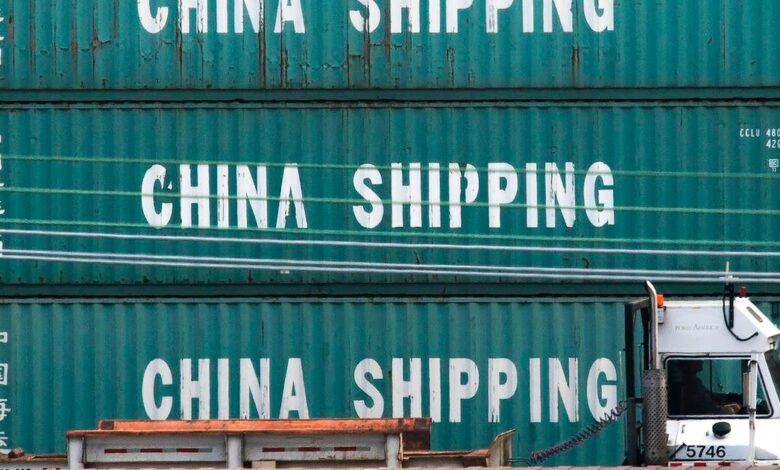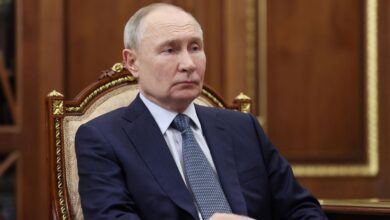China targets dozens of U.S. companies ahead of anticipated Trump tariffs

China on Thursday said it was adding dozens of American companies to its export control list to “safeguard national security and interests.”
China’s Ministry of Commerce said it would impose measures on 28 U.S. entities and would also prohibit exports of dual-use items to the listed companies starting on Thursday, reported the Global Times, a Chinese daily viewed as aligned with Beijing, and the government-run Xinhua news agency. Dual-use items refers to those that can be used for either civilian or military purposes.
China also sanctioned 10 defense firms on Thursday over military sales to Taiwan, the self-governing island that China claims as its own, adding them to China’s “Unreliable Entities List,” the ministry said, according to AFP.
“It really does seem to be a warning shot — that escalation in U.S. policies against China, particularly under Trump, will be met with a more aggressive response,” Jesse Schreger, an associate professor of Macroeconomics at Columbia Business School, told CBS MoneyWatch. “China is signaling it will not take tariffs passively.”
The threat to not sell dual-use goods to listed companies could be consequential, given China’s role as the world’s manufacturing powerhouse, said Schreger. Unclear is how China intends to enforce the measures and which products will be viewed as dual use and therefore have their sales restricted. Tires, for instance, could be viewed as produced for both civilian and military use, he noted.
The moves come as Beijing readies for the return of President-elect Donald Trump to the White House and after the Biden administration broadened its restrictions on Chinese firms amid an escalating back-and-forth. During his presidential campaign, Trump also raised the idea of imposing a tariff of up to 60% on all Chinese goods.
“The desire to put high tariffs on China seems credible, if you think back to the first Trump administration and its willingness to use [tariffs] for geopolitical ends,” offered Schreger. “The Biden administration didn’t undo that — in fact, they professionalized it. The Trump administration’s rhetoric might have been stronger, but the Biden administration took this economic battle to the next level.”
China last month said it was investigating U.S. microchip maker Nvidia over potential violations of Chinese anti-monopoly laws.
China’s action comes less than a week after it placed sanctions on seven companies in responding to recently announced U.S. military sales and aid to Taiwan.
Still, sanctions by Beijing targeting American defense companies tend to have a muted impact given that U.S. military firms don’t sell arms or related goods to China. The tit-for-tat trade measures also could be limited, some analysts think.
“Changes to immigration, trade and fiscal policy under the second Trump administration will likely be meaningful but stop short of some of the more dramatic proposals,” stated Goldman Sachs analysts in a recent report. “We expect tariffs on imports from China and autos, but not a universal tariff, which would carry economic and political risks that we think the White House will prefer to avoid.”
contributed to this report.
https://assets3.cbsnewsstatic.com/hub/i/r/2024/11/12/e02c6db3-19c8-4a46-b86f-807c1844402c/thumbnail/1200×630/08d8d176667aa9cae030934409759fa1/gettyimages-1165548990.jpg?v=fa9977353833f46f40b07abcd9d5240b
2025-01-02 15:21:03




